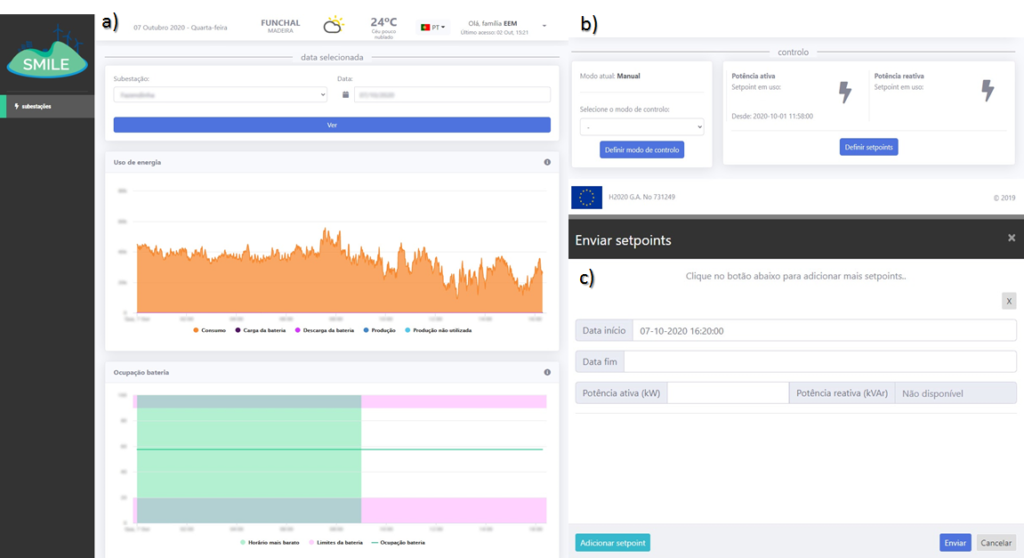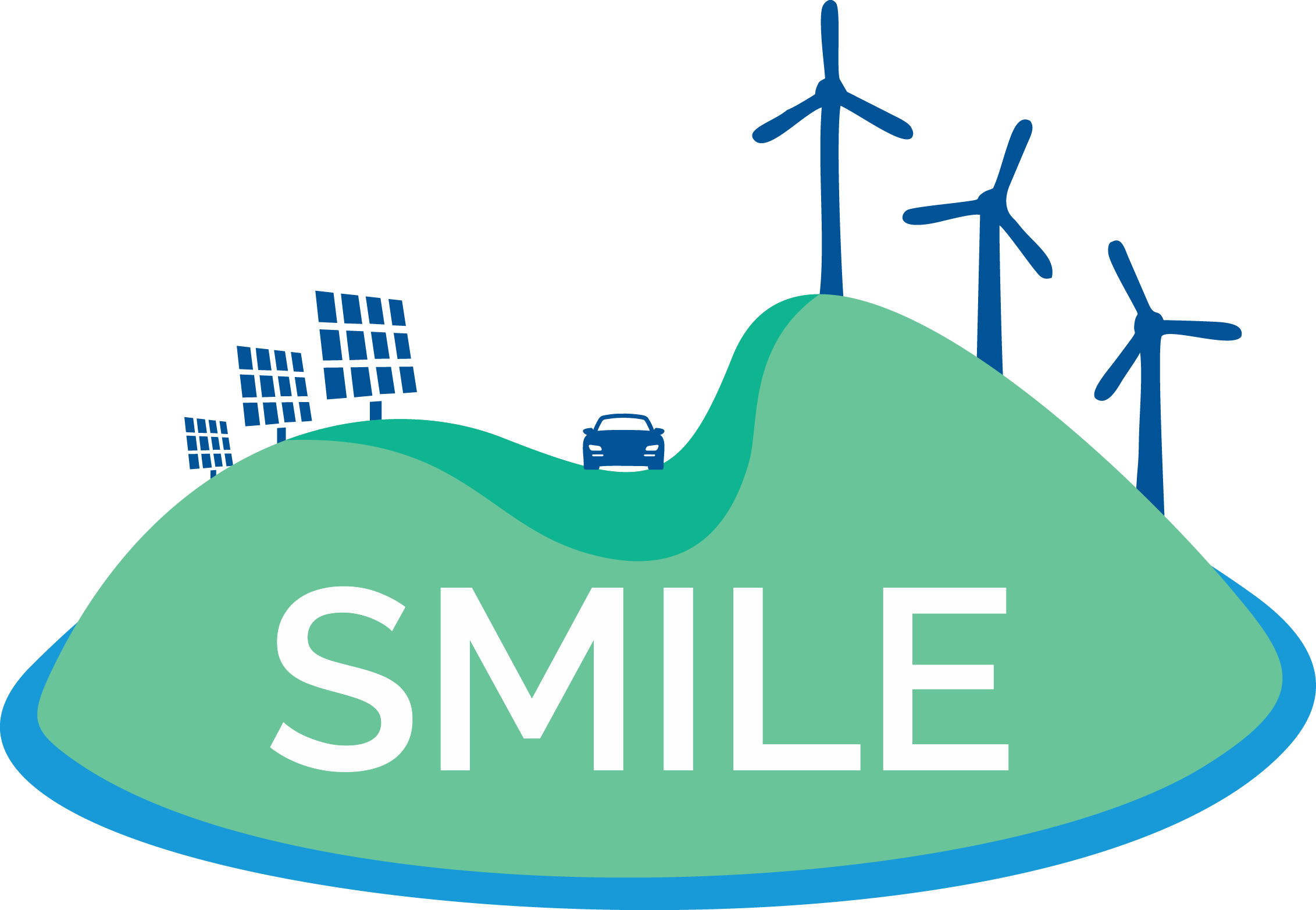Madeira – one of the safest islands in Europe with the lowest COVID-19 infection rates
Since the beginning of the COVID-19 pandemic no fatalities have been reported and restrictions are progressively being lifted in Madeira. Since July 1st the island is open for tourism again. Wearing a mask is compulsory only in shopping centers, shops, public transport or enclosed areas. There is no need to wear a mask if you are walking the streets, beaches, or any outside activity. Restaurants and Bars with open air esplanades are also mask free.
Pilot developments
Besides the life affected by COVID-19, the SMILE project is progressing steadily. Visits to the UPAC (Unit of Production for Self-Consumption) installations are being carried out regularly and the control algorithms developed in the scope of pilots 1 and 2 – targeting respectively domestic and commercial UPACs – have been deployed successfully. Regarding the pilot at the Fazendinha low voltage distribution substation, in addition to the local controller that constantly measures the electrical grid parameters, the DSO (responsible for managing the grid assets) has been provided with manual control of the Battery Energy Storage System. For this purpose, a user interface allowing to trigger active and/or reactive power set points dynamically (depending on the event and whenever needed) has been developed. The interface is currently being tested and will be further refined following an iterative process. In the meanwhile, the Madeiran team is working on simulations that will help evaluate the pilot.
Finally, while waiting for the company to put its fleet of electric scooters back in operation, simulations are also being performed to assess the smart-charging pilot targeting small electric vehicles. Although Tukxi (local guide and touring service) resumed the business in August, due to the limited number of tourists visiting the island, the company decided to operate only the gasoline scooters for the time being.
Information platform
The SMILE partners involved on Madeira conducted several dissemination and engagement activities targeting both the energy consumers and prosumers. Besides presenting the demonstrators’ results, it gave them the chance to understand the perspective from the local community on energy matters and identify the main barriers and drivers towards engagement in sustainable and energy-efficiency practices. Despite a strong interest in the topic, the local community reported difficulties in retrieving and understanding information about legal, economic, and technical aspects related to solar photovoltaic panels and small-scale energy generation in general. Increasing people’s literacy about energy production is fundamental to foster the adoption of Renewable Energy Generation technologies. To address this issue, the research team developed Energias Madeira: an information platform whose goal is to collect and provide useful information about energy consumption and production in a clear and user-friendly way. After almost two years of work to design the platform, and a great deal of effort invested in collecting and simplifying the information, Energias Madeira is ready to be released!
They are organizing an event to launch the information platform and finally deliver it to the local community. In order to reach a broader audience, representatives of the major local media and the Regional Energy Regulator will be invited to attend the event, which will be held in October at the headquarter of ACIF-CCIM.


Recent Comments